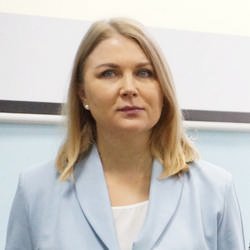'It is difficult for teachers to compete with social networks and games': is there a place for a phone in school?
Written consent is being obtained from parents of Tatarstan schoolchildren to withdraw mobile phones from children until the end of lessons
Discussion broke out in the community of parents of Tatarstan schoolchildren about the legality of taking away phones from children — teachers are asking the parents to sign appropriate consent statements. Someone is categorically against restricting any rights and freedoms of their children, while some parents, on the contrary, are convinced that mobile phones that can interfere with the educational process have no place in school. Realnoe Vremya listened to the opinions of teachers, parents, a lawyer and the children's ombudsman on the pressing issue.
“Aren't there too many restrictions lately?"
Inna Dey from Kazan on her Facebook page raised a burning topic for many parents of schoolchildren: “Is it possible and necessary to take away mobile phones while they are at an educational institution and how legally justified is this?"
“Dear friends. I know there are lawyers among you. I ask you to give a legal assessment of the school order in the official chat of the class. Tips about how cool it is that they have been taken away in our schools for a long time and that one deserves this — please keep to yourself," a mother writes and gives the text of the order distributed through parental chats:
“Dear parents, good evening! After the pedagogical council, in order to be more involved in the educational process and in the name of the health of our children, please send this information to your classes: each parent writes their consent to store their child's phone in a personal locker during the school day in no particular format. Consent must be given to the class teacher. Please talk to your children about the need to exclude the use of phones during school day. Thank you!”
According to Inna, she personally has no complaints about her son about the untimely use of the phone. What is more, he is studying in the 11th graduating class.
“The desire to limit everyone in something and at once is amazing. Aren't there too many restrictions lately?" she asks.
Many subscribers supported Inna in her indignation. But there are also those who hold a different point of view. In particular, Alsu Gilmutdinova claims that “the ban on using phones at school is a completely understandable requirement. But even 45 minutes will not be enough to ask everyone in the class to turn it off.” Lilia Fatkhullina is convinced that such actions are wish wash, because there are often not enough textbooks and they have to be downloaded to smartphones.
“They fought, scolded, but all to no avail. They continue to use them. All this movement has come to naught. They contradict themselves. Like, upload textbooks to your phone. There are not enough of them at school," she says.
Gulnara Chiklina writes that her son is studying in the 10th grade of the Engineering Lyceum, where there is strict discipline.
“There have been a ban on phones during lessons for already five years. There is a locker at the entrance near the security — each class has its own box. They put them there before lessons, and take back — after. No parent objected. It's a discipline. The director of the lyceum maintains discipline strictly. Yes, children find a way out if they want to text mom, dad, but! This is the exception, not the rule. I'm sorry, at a theatre and at a concert, they also ask you to turn off your phone and not use it. This is respect for learning, for the work of the teacher, for the time of the children who are studying in class. But, of course, we have enough textbooks for everyone, there are no more than 15-20 students in a class.”
“One person's freedom ends where another's freedom begins”
Realnoe Vremya turned to the Ministry of Education and Science of Tatarstan and Tatyurinform law firm for an explanation of the reasons for banning the use of mobile phones during studies.
The press service of the Ministry of Education and Science of Tatarstan informed the correspondent of the publication that the issue of using mobile phones by students is solved by each educational institution independently — there is no unified republican system in this matter. At the same time, it is recommended to follow the methodological recommendations of the Department of Rospotrebnadzor on the procedure for using personal mobile communication devices in educational organisations. The department, in particular, noted that “mobile communications are not used for educational purposes”.

“Our opinion on this issue boils down to the following: one person's freedom ends where another's freedom begins. In this context, we consider the actions of educational institutions to establish prohibitions on the use of mobile devices during lessons to be absolutely legitimate, since such use distracts other students and teachers," he stressed.
At the same time, according to the legal adviser, the use of a mobile phone is a matter of regulating the behaviour of students and discipline in an educational institution. “From our point of view, the student should understand that during lessons it is impossible to run, jump (unless, of course, it is not physical education classes), shout. In the same row, there is the ban on the use of mobile devices during classes," he is convinced.
As the interlocutor emphasised, educational institutions themselves will also not motivate students to use mobile devices, since in 2021 the sanitary rules 2.4.3648-20, approved by the resolution of the Chief State Sanitary Doctor of the Russian Federation dated 09/28/2020 N28 “On approval of sanitary rules SP 2.4.3648-20 'Sanitary and epidemiological requirements for organisations of education and training, recreation and health improvement of children and youth” came into force. According to the paragraph 3.5.3. “mobile means of communication are not used for educational purposes. The placement of mobile cellular base stations on the own territory of educational organisations is not allowed”.
Iksanov acknowledged the problem that exists in the issue under discussion: mobile phones are often taken away in schools. “From our point of view, such actions are illegal and are a violation of Article 35 of the Constitution of the Russian Federation, which regulates the protection of private property rights," he stressed.
According to the expert, pedagogical measures of influence, as well as disciplinary measures, up to expulsion from an educational institution, should be applied to a student who has violated the rules of conduct, including the ban on the use of mobile devices, up to expulsion from an educational institution (if the student has reached the age of 15, Article 61 of Federal Law No. 273-FZ as of December 29, 2012 “On Education in the Russian Federation”). At the same time, references to the “Methodological recommendations on the use of mobile communication devices in general education organisations”, approved by Rospotrebnadzor No. MR 2.4.0150-19, Rosobrnadzor No. 01-230/13-01 as of 08/14/2019 are not appropriate in this case. Firstly, this document is of a recommendatory nature. Secondly, the purpose of the publication of these guidelines is to minimise the harmful effects of mobile communication devices on children.
Summarising, Iksanov concludes: the recommendations of the departments are a kind of manifestation of caring for children, which should be perceived correctly by educational institutions. This does not mean that employees of educational institutions have been given the authority to use brute force, he claims. On the contrary, they are obliged to consider minimising the use of mobile communication devices in sensitive ways:
- to carry out information, educational and explanatory work on the possible negative consequences and effectiveness of the educational process with the disordered use of mobile communication devices in the educational process;
- to provide psychological and pedagogical support of the process related to the restriction of the use of mobile communication devices in an educational organisation;
- to carry out activities aimed at fostering a culture of using mobile communication devices for all participants in the educational process, using the educational potential of collaboration (teaching staff with children, high school students with younger children) in terms of fostering a culture of using mobile communication devices, etc.
“Not taking your phone out of your bag in class and turning off the sound should become the norm”

“It is very difficult for teachers to compete with the Internet, social networks and games, in which children often spend time in the classroom," she is convinced.
According to the interlocutor, parents should logically be the main initiators of the ban on the phone in the classroom. “Of course, the parents of each school have the right to resolve the phone issue. Personally, as a mother of four children, I ask them not to use the phone in class," she says.
At the same time, Volynets admits: it is difficult to imagine how the process of handing over mobile phones at the entrance to the school will be technically organised. “Not taking your phone out of your bag in class and turning off the sound should become the norm," she is convinced.
“They themselves made students dependent on them”
Oleg Koryakin, a correspondent of Rossiyskaya Gazeta in Kazan, is the father of four children, two of whom are schoolchildren, students of the 3rd and 4th grades of Lyceum No. 116.
“In our lyceum, you can take a mobile phone to school. But they are taken away before the start of lessons and returned after the end of lessons in after-school clubs," said the interlocutor. “In fact, we need mobile phones only to communicate with children, to ask how things are, and to inform them that we are going to pick them up. So everything is organised correctly — parents have no complaints and no reasons for conflicts. The most important thing is to have a connection with the child after classes.”
According to the father of many children, mobile phones are not needed during lessons — they will only distract, taking into account the dependence of current children on phones. Moreover, this rule should apply to all students, regardless of the class of study. “The older children are, the more they can abuse phones. So I think it's perfectly normal if such a practice is in effect until the end of school. I do not exclude that the children themselves, due to adolescence, may be indignant about this. But except for cheat sheets or distraction from the main lesson, it is hardly possible to use mobile in class," Koryakin noted.
Another mother, whose daughter studies at the Lyceum of Lobachevsky at the KFU, on condition of anonymity shared how the phone issue was resolved at their educational institution. Just the other day, the following information was distributed in the parent chat: “The lyceum administration asks parents to write with their own hands and give the following consent to the class teacher: I, full name, being the legal representative of my son (daughter), full name of the child, class, I am responsible for the use of their mobile phone at the lyceum. My son/daughter undertakes to leave his mobile phone in the special box in the classroom during the lesson without warning the teacher.”
Despite all the rigor of the educational process organised at the Lobachevsky Lyceum, until recently children were allowed to use mobile phones, the interlocutor claims. “But they are children. Earlier, in their schools, they sat studying, cramming. But when they came to the 6th grade of the lyceum, they literally broke free. It was just to the point of stupidity — the children played on their phones not only during recess, but also during lessons under the table. Well, plus they googled the answers to the questions," she says. If in previous schools it was possible to agree with a child on a push-button phone or even on its absence, then in the lyceum the educational process itself requires the presence of a smartphone.
“The phone is our enemy. But without it, there is no way either. I used to be outraged why the school allowed the phone. Now we have made this decision to ban the use during educational activities," the interlocutor says. However, in her opinion, many issues have not been taken into account. Firstly, there is a problem of the gadget's safety in the box at the entrance. Secondly, most of the children pay for meals with a bank card linked to the phone, etc. As a result, parents and the administration of the educational institution came to a consensus — children leave their phones in a special container at the entrance to the classroom and pick them up after the bell. However, this does not solve the issue of spending time during recess. Besides, some resourceful students bring two phones and only one of them is left in the container.
“Deep down, everyone is against mobile phones in schools. But technically, it is very difficult to implement this ban, taking into account the organisation of meals, homework, the presence of an electronic diary, chat with teachers. They themselves made students dependent on them," she sums up.
“We play these games with them”

“At 3:15 pm — they can use them. If you want to call during school hours, go outside and use it too. We play these games with them. The second option is to ask the teacher to call or look at the desired book on the phone. Any teacher will always allow and say — here's 10 minutes for you, please use it," Shmakov said. “That is, we do not have a permissive, but a declarative procedure. The student reports that he really needs to use the phone.” If controversial issues arise, they are resolved on weekly assemblies jointly by the teaching staff and students.
According to Shmakov, the phone is a drug akin to cigarettes, alcohol, coffee, etc. “We must understand that a drug is bad. You get used to it, but it's very difficult to lose the habit. We have several students who are phone addicts. It is very difficult for them to tear themselves away from the phone. But it is very important to negotiate with them. Even in good schools, an administrative command system is adopted everywhere, where the teacher is in the top position. We are in a fundamentally different position — we talk and discuss with children together. We even have a room in the school where adults are not allowed to enter. At the same time, I know that sometimes they use their phones there. And this is a subject for conversation and agreement. We talk to them honestly," says the director of Solntse. “And even intellectual passion does not negate the fact that children are children. But at the same time, children should not be humiliated. Using the phone is not obscenity. It's not something indecent. They need the phone, and we need to agree on the rules for its use.”
If the child enthusiastically plays the phone — and this is always visible, the interlocutor asks the student to give him the phone. “I ask, not force. He can call his parents and say he doesn't want to give me the phone. But it's easier for him to give me the phone than to call his parents about it," says Shmakov.
“Sometimes it is impossible to do in class without smartphones”

“We don't have enough problem books, textbooks that we need. And what is sent to libraries is often not needed by anyone and is no good," says the teacher. “So sometimes it is impossible to do in the classroom without smartphones, we just can't do without them. We have such problem books, which are not available in the library. In Kvant, children do without phones — there is no connection there, and they have no time.” According to the interlocutor, at her math lessons, children do only math and are not distracted by smartphones not for educational needs.
When it comes to elementary school students, other rules may apply, Sochneva believes. According to the teacher, her great-grandson studies at school in Derbyshki and does well without a phone at school and even without a TV at home. “I sometimes wonder: when people travel in public transport, they give a smartphone to a child in a stroller, and he or she watches cartoons. Some, to get the child out of their hair, give them a phone and they do what they want," she is indignant.